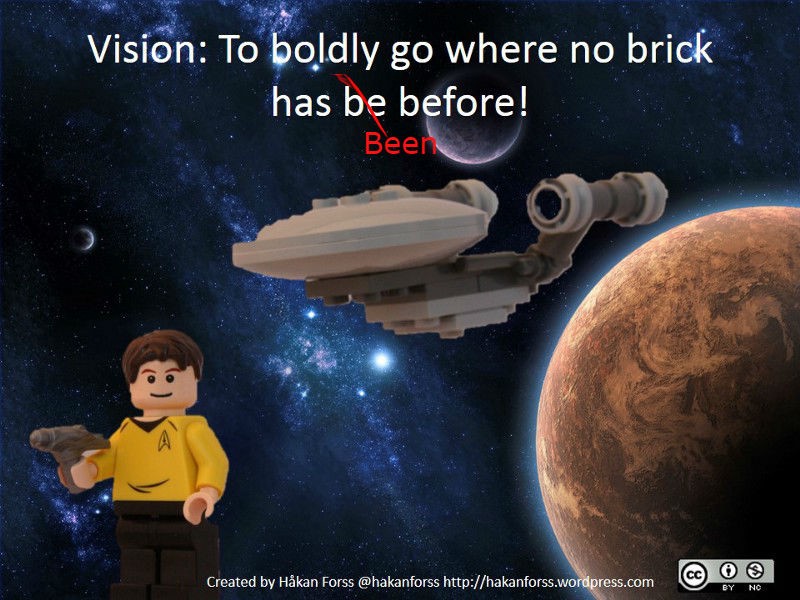Software is gonna eat the world
“There is a great disturbance in the force”
— Obi Van, M. Yoda , D. Wader
The IT and Tech industry is facing a new boom, where thousands of smaller and bigger startup companies struggle to get funding, and struggle with winning the race on a global disruptive market. You can no longer hide in your local pond; someone else will surpass you. There can be only one winner. To win you must be successful on a lot of different parameters. You need a good product, you need a good organization, you need good marketing, you need excellent customer support, you need an innovative, stable and well running engineering department and the list continues. You can quickly destroy your brand if you neglect one of these things and don’t get the balance right.
The story goes that the famous author Steven King once was asked how he was able to write such great books in the horror genre. He replied that it was because of the significant amount of time he had spent reading great books by great authors.
What I am going to write about here is not new, and yes it will be a theft from other authors, bloggers, software developers and so on. I can only add a twist by including my own experience as software developer. Even the fantastic Lego images done by Håkan Forss and the Star wars quotes are thefts. And I’m sorry for bringing them, there is nothing innovative here. But Lego and Star wars seems to resonate well with some peoples brains.
Anyway, Hopefully these posts can be of interest to someone none the less.
In this series of posts, I will walk through some of the challenges involved in running a growing Saas Company. Saas is an abbreviation for “Software as a service”. Simply speaking, Saas companies provide software solutions hosted in the cloud, to be leased by their customers.
We will take a top down approach where we look at the company’s Mission statement, Corporate Values, we Will look at company organization and processes, the software system that a Saas company build, and the problem domain in which it operates. Lastly, we will look at some popular concepts often articulated in these companies.
Part 1
1. The mission
2. Company Values
3. Methodologies and processes for growing startups
Part 2
4. The Organization
5. The problem.
6. The System
Part 3
7. Transparency
8. Empowerment
9. Silos
10. Autonomous teams
11. Agile
12. Common sense.

The mission (Why do we do it)
“Become who you are”
— Marcus Aurelius
All companies now a days has a mission statement, probably mentioning something about providing value for customers. Normally it’s specific to the problem domain that the company is operating with in. Normally it’s something no one can disagree with. That sounds easy! Or?
Every human need and want purpose in their life! They want to do something meaningful. Since most of us spend a great part of our time at work we also want our work to serve some higher purpose. OK Someone might challenge this, but at least many of us gets more motivated by working with something we believe serves a higher purpose. Off cause we also like to be paid for our jobs.
So even if a Mission statement should be trivial to do, if not done right, you are not taking yourself, your employees, and your customers seriously.
What can be tricky is to catch everything in one short statement.
But writing something like “We want to be the preferred provider in the world of services for our customers”. Is an offense. It doesn’t say anything at all. Maybe no one has written exactly this, but I dare to say that many has written something very close to this.
1) Be realistic! Do you mean the world or do you mean Tübingen in Baden-Württemberg, Germany. If You are really successful you can change the statement to include the whole world later.
2) What service are you providing?
3) To whom exactly are you providing this service.
4) In what way does it meet a need for your customer.
5) Maybe reflect on what you don’t do. This might not fit into a short mission statement, but help you to scope what you real mission is.
For startups writing a mission statement has an extra edge to it. Is this idea really good? Is it doable, will anyone believe in it and invest in it?
If you get it nailed and have a good mission statement, it should act as an anchor point and a guiding star in your daily work. Do I contribute to completing this mission with the work I do now?
In case you want to learn more about mission statements check this link

Company Values (are you authentic)
Company values — Why do we have them? Companies want to stand out, and they should. What makes us special (and perhaps better than others). What is our DNA? What is it that binds the organization together?
A set of values help us to define who we are just like a person has a set of values ethical and so on.
It can also help us to guide behavior. If we are authentic (We say what we do and do what we say) then any individual should be able to fall back on the company core values when in doubt about how to behave in a given situation.
Pay attention to the word authentic. That is an extremely important word. Some companies even have it as a core company value. The thing is that most companies don’t really live up to their values. That means they are not authentic. If you are not authentic your employees and your customers will eventually find out. And they will stop trusting the other core values. Well no company is perfect, and hopefully most companies try to live by their values. But if you discover that you are drifting to far away, you should stop and ask yourself Why? Was this a conscious or unconscious drift? Sometimes you will be put in the difficult dilemma where you can be forced to go against your values. But you should be able to explain why.
Normally company core values are of general purpose and often of human nature. It could be honesty, empathy, collaboration, authentic, curiosity, innovation, winning, integrity.
Sometimes these values are to broad to be useful for smaller teams that has more specific challenges. Here it makes sense to agree on team specific values. Also, a department could have department specific values. An engineering department could have engineering or tech values, used to guide behavior of the department members.
For all these values goes that they need to be Evangelized on a regular basis. And they should be of value in the daily work of the employees. If not, they will soon loose their value because people will stop taking them seriously.
“Company values should be tangible and be applicable to the daily work of the employees”

Methodologies and processes for growing startups (There is no silver bullet).
Managers and tech entrepreneurs read books about successful companies and of successful methodologies and they should. But sometimes common sense is forgotten.
I Once worked in a start-up where we tried to apply the Spotify model. This was all good and very well communicated. It was indeed useful. But I don’t think it was without problems. The first problem I saw was that the guiding North stars of the Company were all of generic character, that is, they could have been chosen by many other companies. There was nothing specifically identifying the company I was working in. The guiding stars were good, but they lacked the property of distinguishing the company from other companies.
The second main problem with this is that I think it stole the focus from some constraints in the company that was far more important to deal with. The reason for using a methodology must be to improve how the company performs on an overall basis. It should make the company work smarter more efficient and so on.
It’s difficult to measure exactly how much is gained from an initiative like applying a new business methodology, where teams are reorganized, tools are introduced, processes are changed. Well someone will probably say that it can be measured by looking at various Key Performance Indexes (KPI’s). I will not argue that it cannot. But comparing the KPI’s resulting from one applied business methodology with the KPI’s derived from another way of spending resources or some complementary initiatives is very difficult if not impossible for a single company.
What I am thinking is that the change in itself was good enough. At least the intention was good. But I still think that some bad constraints were neglected at the same time. In the eager for following this new way of working, simple, common sense was neglected.
The new way of working improved something, but it didn’t remove the constraints that were far more important.
“Methodologies and process frameworks needs to be implemented and the steps in a new process needs to be practiced. A methodology must not lead to blindness and neglect of common sense”
In the next post we will look at the organization, the business problem it solves and the system it builds to solve that problem.







